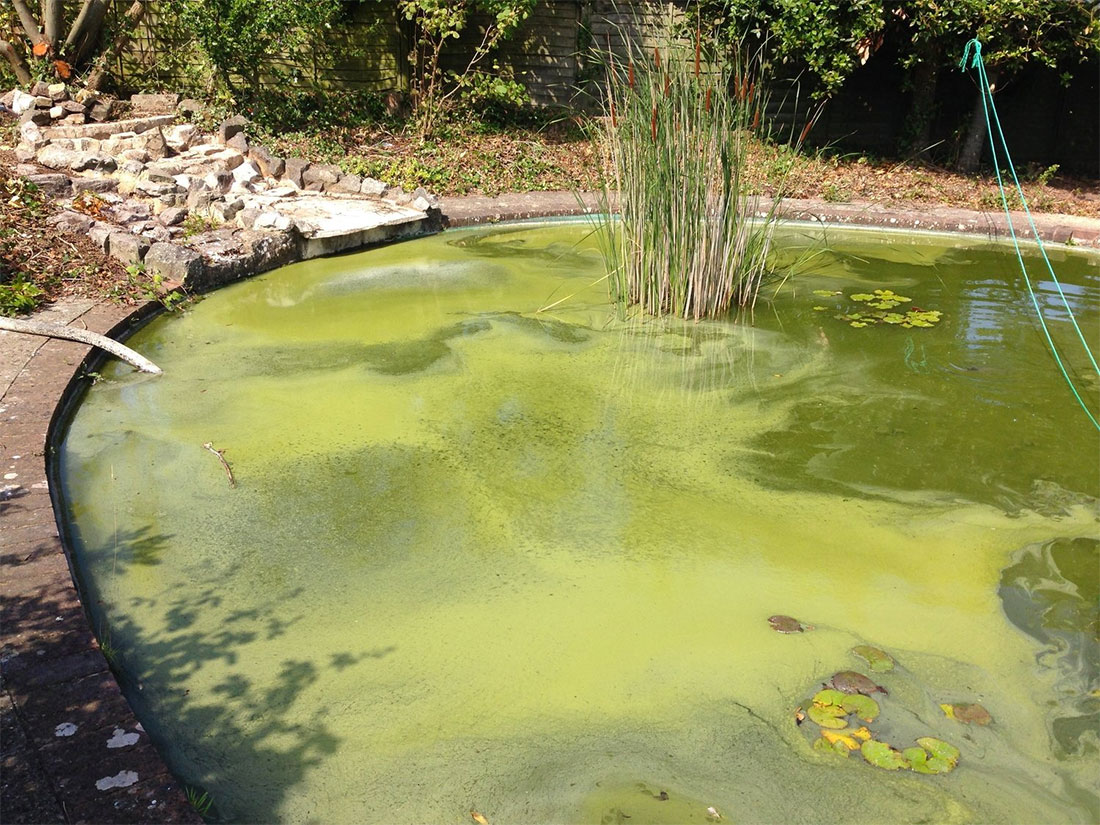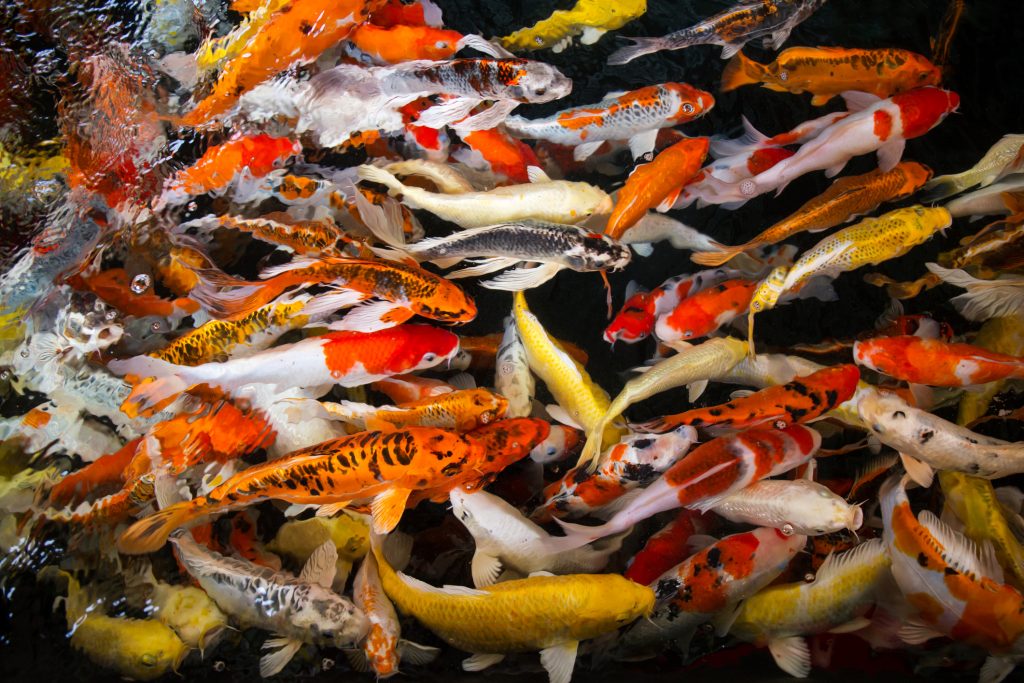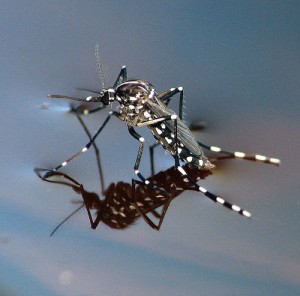Benefits of Aerating your Pond

A lack of oxygen is, without doubt, one of the biggest, hidden problems that can cause so many other problems in your pond. Ponds without extra aeration may face problems with the chemicals in their pond (Ammona, Nitrites, Nitrates, Phosphorus and Hydrogen Sulfide). By increasing the levels of oxygen in your pond, your fish will thank you as they enjoy the water movement and your pond will become a well-balanced ecosystem that can only be good for your fish, your pond and your plants.
Adding oxygen to your pond isn't difficult; you can add oxygen in very elegant ways, like having a water feature (waterfalls or fountains) or having a variety of plants in your pond. The easiest way and most efficient method of adding oxygen is to install a dedicated air pump. See our other blog post, How to Oxygenate a Pond, for more information on these methods.
While you can use a water feature to aerate your pond, a typical water feature such as a waterfall or fountain isn’t as effective as using a proper sized air pump, as the feature will only circulate the top portion of your ponds water leaving many areas below the surface untouched. A good-sized pond air pump works from the bottom up to make sure all the areas of your pond water is circulated and saturated with dissolved oxygen.
Smaller ponds (under 1000 litres) will require smaller amounts of extra aeration and can often be done using a solar air pump, like the PondXpert SolarAir 200 Plus. When you start to increase your ponds to 1000 litres and more, it is highly encouraged to create a waterfall, stream or a fountain to help keep the water moving in addition to an air pump; this is because bigger ponds are often host to a variety of fish that need extra oxygen. If you have a lake that you need to aerate, you will need to keep the water flowing, a good filtration system and a dedicated air pump like the PondXpert ElectroAir 6000 (with half price accessories kit).
There are a lot of pond keepers who lose fish in an overly stocked pond, but don't have any aeration. By looking after your ponds water quality through adding extra oxygen, your pond can hold more fish and you can reduce the number of fish deaths in both the summer and winter significantly. As a rough estimate, we recommend the following:
- 3kg Goldfish per 1000 litres
- 1kg Koi per 1000 litres
.jpg)
Improves Water Quality
The sludge in your pond will create harmful gasses over time; chemicals such as Ammonia, Nitrites and Nitrates. These are very common chemicals which will need to be managed by most pond keepers.
Adding an aerator to your pond will help to decompose the sludge much more efficiently; when you have higher oxygen levels in your pond it will stimulate and increase the natural development of aerobic bacteria which will assist your filtration system. The aerobic bacteria promotes efficient decomposition which helps to prevent the spikes of Ammonia, Nitrites or Nitrates. A good filter system (including a pump, filter and an aerator) will lead to healthier fish, cleaner water, thriving plants and less organic debris build up on the bottom of your pond; this means that maintenance will be kept to a minimum as the water stays clear for longer meaning you can spend more time enjoying your pond than cleaning it.
These chemicals (Ammonia, Nitrites and Nitrates) can also be treated by using the PondXpert Gel Balls. These Gel Balls can add healthy bacteria into your pond while also treating any Ammonia, Nitrites and Nitrates and clarifying your water.
A good sized air pump can also save you money. Pond air pumps are very energy efficient and are designed to run 24/7 so you can turn off your waterfall while you are not at home to enjoy the sounds of the water cascading of your waterfall and let the air pump do the job of aerating your pond instead.

Reduces Algae Growth and Odours
In addition to the above, the oxygen added to the pond will help to control the levels of Phosphorus in your pond; this is a chemical is used by algae to grow. By controlling the Phosphorus, you are preventing algae growth.
The oxygen can also help to push algae spores into the deeper parts of the pond; removing the amount of available sunlight that the spores have to grow. In mixing different parts of your pond, the Hydrogen Sulfide gas that creates the odours will also be treated by the water movement; thus treating any odours your pond has as well!
If you are suffering from an algae problem and you have an aerator, there could be something else causing the algae bloom. Please see our blog post on Green Water. This goes through common reasons for the algae bloom and various ways in which this can be treated.
 Improves Environment for your Fish
Improves Environment for your Fish
When you have a big pond, the temperature of the pond can change at various levels. This is commonly referred to as ‘Thermal Stratification’. Essentially, it means the temperature at a depth of 10cm will be different to the temperature at 40cm.
This can create pockets of the pond that have very little oxygen; causing a decline in water quality and the ecosystem. This can lead to an increase in decaying plant life, a lack of healthy bacteria and an increase in chemical spikes. All of which may cause your fish to die.
By oxygenating the pond, you are removing these depleted pockets and vastly improving the environment of your pond. Thus, keeping your fish safe and the environment healthy.
Prevents your pond from freezing over in Winter
When winter is upon us a good pond air pump can replace the need of a pond de-icer/heater or waterfall to keep the pond freezing over. As your fish lay dormant at the bottom of your pond during the winter months organic debris in your pond will continue to decompose and produce toxic gas. If your pond freezes over and these toxic gasses get trapped under the ice, these chemicals will start to take the place of oxygen which is bad for fish, they get sick and could die. Although a pond de-icer will melt a hole in the ice to allow oxygen in and let these toxic gasses escape from beneath the hole, they can’t release gasses from other areas of the pond. When you use a pond air pump the constant movement of water discourages ice formation on your ponds surface while at the same time the aeration carries the toxic gasses up to the surface to be released keeping your fish nice and safe in the cold winter months. Just remember to raise the air stones from the bottom of the pond to a shallow area, so they don’t disturb your hibernating fish.

Acts as a Mosquito control mechanism
What some people don’t know is that Mosquito’s love to place their eggs in still water. Now, you shouldn’t have still water as this can contribute to a stagnant pond and all of the above problems. But if you do, this is a perfect breeding ground for Mosquito’s.
By keeping the water flowing and oxygenated, you are removing the viability of the pond to act as a breeding habitat. This means aeration can actually act as an easy way to controlling any Mosquito problems you are facing.
What size Air Pump should I get for my pond?
We have included a table below as a buying guide. Many pondkeepers do not keep fish in the pond and the addition of a smaller air pump will be sufficient. Fish ponds require a larger amount of air, Koi ponds especially. If keeping other 'oxygen hungry' species such as sturgeon then the flow suggested below should be amplified further.
Please treat this as advice only - every pond is different.
|
Output of Air (litres per hour) |
No Fish (litres of water in the pond) |
Goldfish (litres of water in the pond) |
Koi (litres of water in the pond) |
| 210 | 1500 | 1100 | 500 |
| 450 | 3000 | 2500 | 1200 |
| 600 | 4250 | 3300 | 1650 |
| 1200 | 8500 | 6600 | 3300 |
| 1800 | 12750 | 10000 | 5000 |
| 2400 | 17000 | 13200 | 6600 |
| 3600 | 25500 | 20000 | 10000 |
| 4800 | 34000 | 26400 | 13200 |
| 6000 | 43200 | 33000 | 16500 |
If you need any further assistance, please do not hesitate to contact us.